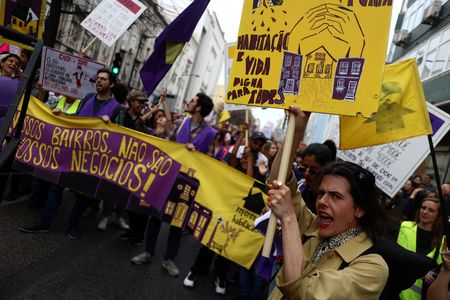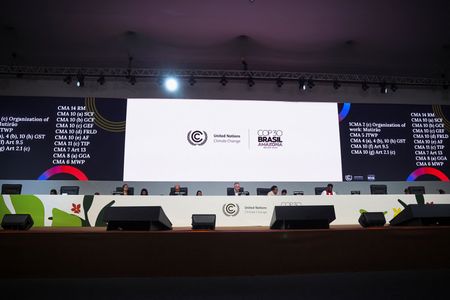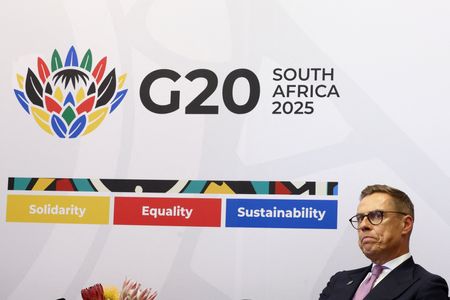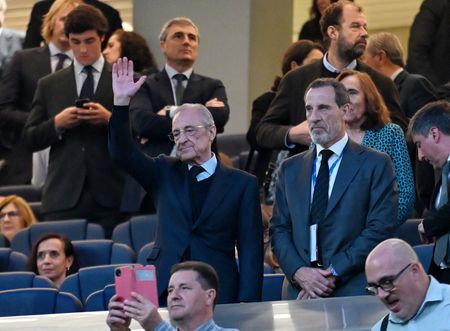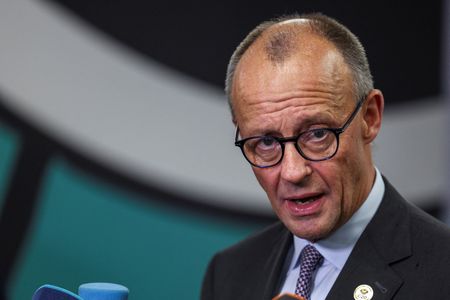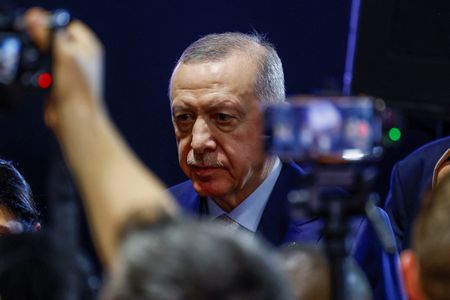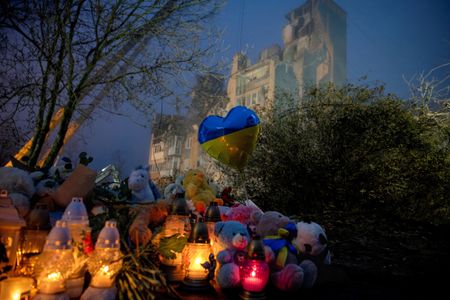By Sergio Goncalves
LISBON (Reuters) – Portugal’s government launched on Friday a new spending package worth 2 billion euros ($2.22 billion) to build around 33,000 homes by 2030 for the neediest families facing unaffordably high house prices and rents.
Infrastructure Minister Miguel Pinto Luz said 10,000 of the new homes will have 100% non-refundable financing, and the remaining 23,000 will benefit from public grants equivalent to 60% of the cost of each home.
The new package, to be financed entirely from the state budget, adds to the more than 2 billion euros already being used to build 26,000 homes by 2026.
“There will be around 59,000 new homes by 2030. It is the largest public investment in housing in recent decades to guarantee a decent home to those who need it most,” Pinto Luz told reporters.
Prime Minister Luis Montenegro said his centre-right minority government was fully committed to solving housing problems along with private and cooperative initiatives, and that the new package “will not jeopardise the budget balance”.
The housing crisis is rooted in a chronic shortage of affordable housing, aggravated by the arrival of wealthy foreigners lured by residency rights linked to property investment and tax breaks offered by the state.
A tourism boom has led to a surge in short-term holiday lets, further squeezing the housing market.
The problem is most acute in the biggest cities including the capital Lisbon, where rents have risen by 94% since 2015 and house prices have soared by 186%, according to housing data specialists Confidencial Imobiliario.
Portugal is not the only European country facing housing problems.
Greece said on Friday it would give a three-year tax break to homeowners who convert their short-term rentals to long ones, to clamp down on holiday lets and tackle a housing shortage.
Europe’s short-term rental boom has already prompted tourism hotspots such as Spain’s Canary Islands, Berlin and Florence to announce restrictions on such lets.
($1 = 0.9018 euros)
(Reporting by Sergio Goncalves; editing by Andrei Khalip and Timothy Heritage)

